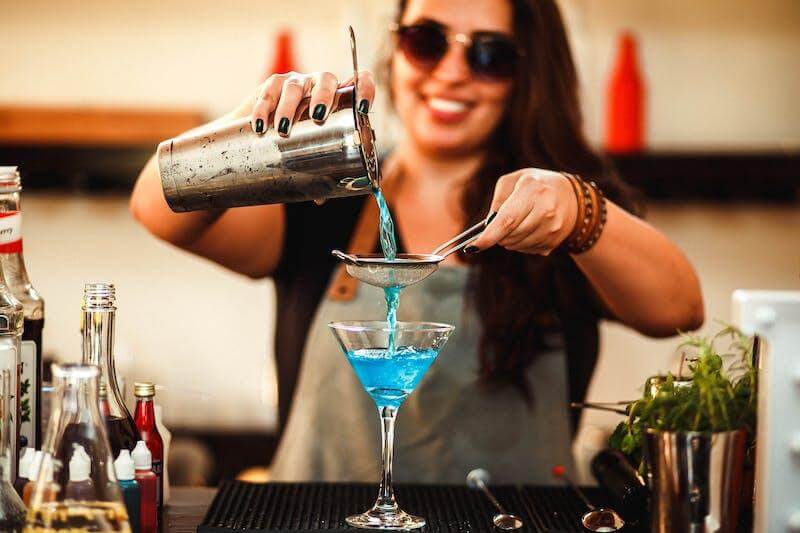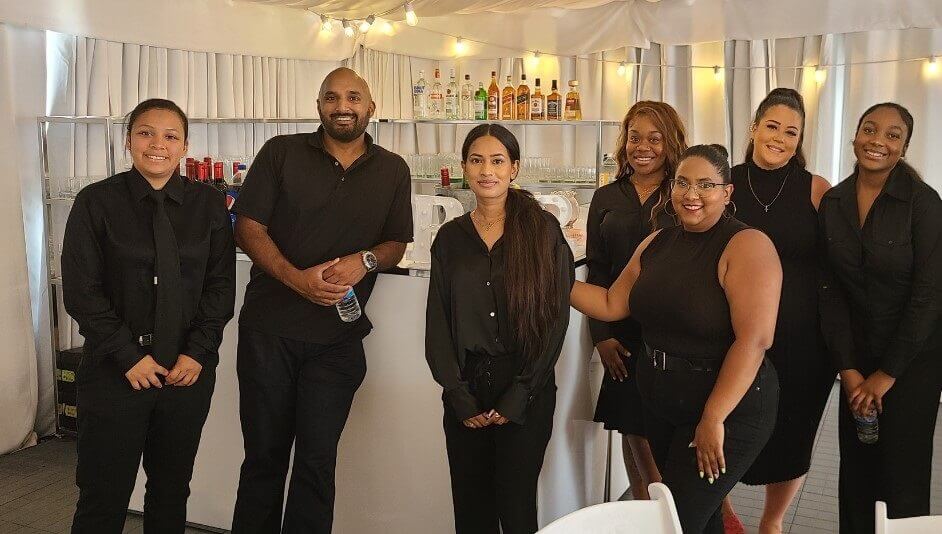
Bartenders and Mixologists: What’s the difference?
The primary difference between bartenders and mixologists involves 3 factors: skills, focus, and creativity. For instance, a bartender serves a gin and tonic quickly during busy hours, while a mixologist creates a custom cocktail using elderflower liqueur and citrus foam for a private gathering.
1. Understanding the Basics of Bartenders and Mixologists
What Is a Bartender?
A bartender is a professional who serves drinks efficiently, emphasizing speed, customer interaction, and creating an energetic atmosphere. For example, a bartender in a sports bar serves 20 beers, 10 mojitos, and manages food orders within 1 hour. Bartenders also frequently offer personalized recommendations, suggesting drink pairings or specials to enhance the customer’s experience.
What Is a Mixologist?
A mixologist is an expert who creates innovative cocktails by experimenting with unique ingredients and advanced techniques. For example, a mixologist reinvents a Negroni using lavender-infused gin and a smoked orange peel garnish. Additionally, mixologists often develop their own syrups, bitters, and infusions, elevating the complexity and uniqueness of their cocktails.
What Are the Top Skills of a Bartender?
Bartenders possess 3 essential skills:
- Speed and multitasking: Managing numerous drink orders simultaneously.
- Customer engagement: Providing friendly, engaging service consistently.
- Classic drink preparation: Accurately mixing common cocktails like margaritas and mojitos.
Example: A bartender rapidly serves classic mojitos and beers to maintain service flow during peak times. Additionally, bartenders frequently memorize dozens of drink recipes to maintain efficiency during busy shifts.
2. Skills and Expertise

Bartender Skills
Bartenders excel in:
- Speed and multitasking: Managing high volumes of orders during peak times.
- Customer engagement: Providing friendly, engaging service.
- Classic drink preparation: Mixing staples like margaritas or mojitos consistently.
Example: A bartender at a sports bar serves 20 beers, 10 mojitos, and takes food orders within an hour.
What Are the Key Expertise Areas of a Mixologist?
Mixologists demonstrate expertise in 3 core areas:
- Innovation: Crafting cocktails with distinctive flavor combinations.
- Technique: Employing advanced methods such as infusions and molecular mixology.
- Presentation: Enhancing visual appeal through creative garnishes and elegant plating.
Example: A mixologist designs a cocktail featuring house-made basil syrup, mezcal, and edible flowers served in an artisanal glass. Mixologists also regularly attend industry events and competitions to stay ahead of emerging trends.
3. Creativity and Innovation
How Creative Are Bartenders?
Bartenders display creativity primarily by slightly modifying classic drink recipes to meet customer preferences, maintaining consistency and efficiency. For instance, a bartender adds fresh strawberries to a traditional daiquiri upon request. They might also adjust sweetness or alcohol levels based on customer preferences, showcasing adaptability and creativity.
How Innovative Are Mixologists?
Mixologists are highly innovative, consistently experimenting with unusual ingredients and cutting-edge methods to create new cocktails. For example, a mixologist develops a signature cocktail with mezcal, basil syrup, and edible flowers presented in unique glassware. They regularly introduce seasonal or thematic cocktail menus that highlight local or exotic ingredients.
What Is the Role of Bartenders in the Industry?
Bartenders are critical for maintaining smooth operations and vibrant atmospheres in bars. For example, a bartender effectively manages a busy happy hour, quickly serving drinks and ensuring customer satisfaction. They also often handle inventory management, ensuring bars remain well-stocked and operational.
What Is the Role of Mixologists in the Industry?
Mixologists influence cocktail trends by designing innovative drinks, significantly contributing to the craft cocktail movement. For example, a mixologist sets new industry trends by creating unique cocktail experiences for upscale events. Additionally, mixologists frequently collaborate with brands to develop signature drinks that boost brand recognition and market presence.
The essential difference between bartenders and mixologists comes down to 3 primary factors: skills, focus, and creativity. Bartenders emphasize quick, efficient service and customer interaction, whereas mixologists focus on creativity and innovation. Both roles significantly shape the modern beverage industry, catering to diverse customer expectations.
For your event, consider hiring professionals like Full Circle Event Solutions for experienced bartenders and creative mixologists who can tailor the perfect drink experience for your guests.
